Uncategorized
2023 PRESIDENTIAL ELECTION: PATH TO A TINUBU VICTORY -By Adeyemi Mapaderun
Published
3 years agoon
By
Admin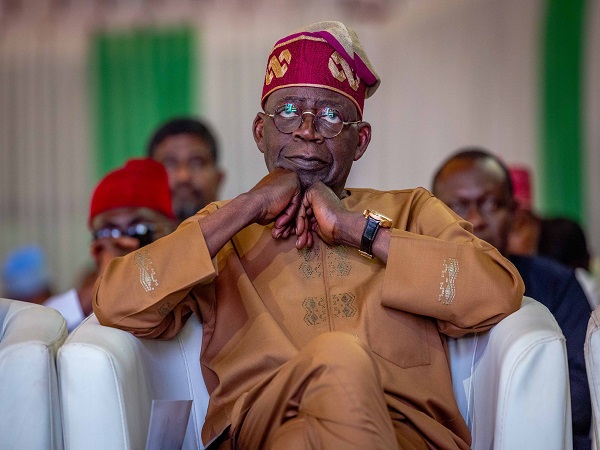
2023 PRESIDENTIAL ELECTION: PATH TO A TINUBU VICTORY -By Adeyemi Mapaderun
The much-anticipated 2023 general elections are here. In a few days, we shall know who will succeed Muhammadu Buhari, GCFR as president of the Federal Republic of Nigeria. Simultaneously, it will be clear which of the contending parties will control the levers of legislative powers in both chambers of the National Assembly. A fortnight down the road, it shall be the turn of the federating units to know who their chief executives would be and which party will hold the ace in the uni-cameral State legislatures.
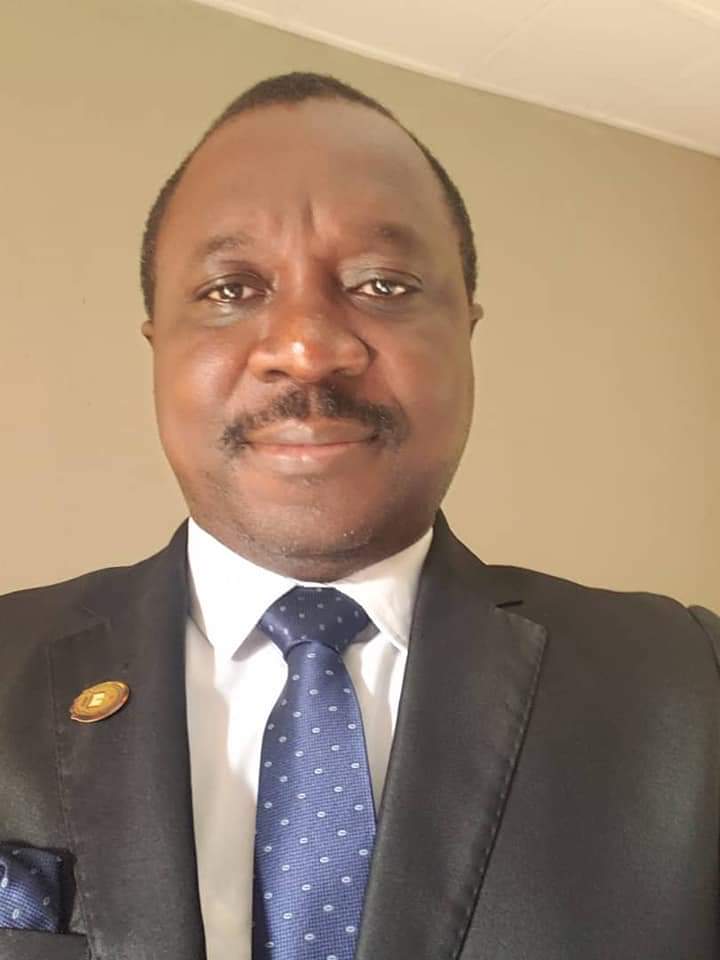
Adeyemi Mapaderun
Without a doubt, public attention and focus have been on the presidential tussle. This has always been the case, historically. There is an impression that the president of Nigeria is the sole or at least, the single most important determinant of the direction and impact of governance on the people. Though, this assumption may not be absolutely correct, but as they say, perception is often stronger than facts. It is therefore not surprising that from the pulpit to the newsroom and from the streets to the boardroom, every ounce of attention is on who wins the presidential election.
Many analysts have reduced the contest to a three-horse race. Some say it is still a four-horse race. The proponents of the former see the election as being between Mr Peter Obi (Labour Party, LP), Mr. Atiku Abubakar (People’s Democratic Party, PDP) and Mr. Bola Tinubu (All Progressives Congress, APC). The latter group adds Mr. Rabiu Kwankwaso of the New Nigerian People’s Party, NNPP as a fourth force. Whatever the view being projected, one thing is clear; this election is like none since 1999. However, its outcome is potentially looking like what we had in 1959 and to a larger extent, 1979. In both cases, a third party determined where the pendulum of victory swung.
In 1959, Sir Ahmadu Bello’s NPC succeeded in controlling the parliament and forming the government at the centre owing to an accord with Dr. Nnamdi Azikiwe’s NCNC. NPC’s gain became Chief Obafemi Awolowo’s AG’s loss. This is because, had NCNC actualized the negotiated accord with AG, either Awolowo or Zik would have emerged Prime Minister and formed a coalition government.
The election of 1979 is even more relevant here because it was a presidential election where the winner ‘takes all’. Alhaji Shehu Shagari won the election with 33.77% of the popular votes and one-third constitutional requirement in 12 states out of 19. Twelve states was short of two-thirds of 19 states. This imbroglio gave rise to the famous twelve two-thirds submission by the late Chief Richard Akinjide, SAN before the Supreme Court which upheld the argument and declared Shehu Shagari winner of the election. The crux of the matter here is that Chief Awolowo’s UPN and Dr Azikiwe’s NPP had 29.18% and 16.75% of the popular votes, respectively. The sum total of their votes is much higher than the total votes of the winner. This was even more dramatic because both Alhaji Waziri Ibrahim’s GNPP and Mallam Aminu Kano’s PRP had over 10% each of the popular votes. An alliance between UPN and any of the two could have been enough to win majority votes in that election. It is therefore apt, to describe the 3rd, 4th and 5th place finishers in that election as disruptors or spoilers.
What does this portend for the 2023 presidential election? The emergence of the LP’s Peter Obi and NNPP’s Kwankwaso fit perfectly into the above scenario. My reading of this election is that both candidates will play the spoilers in this election. My conclusion is that the two major parties – APC and PDP are the real contenders.
A strategic analysis of the chances of the four most visible political parties shows that the candidate of the APC will win the presidential election on first ballot. The following prevailing factors tilt the pendulum in his favour.
First is the settled convention of power rotation. With President Buhari rounding off his second and final term of four years, the expectation is that it is the turn of the south to produce a president in 2023. Candidates Tinubu and Obi are the two foremost candidates from the south with one of them expected to benefit from this rotational arrangement. That beneficiary will be Tinubu because of the long-standing strategic alliances he has built nationwide in the last thirty years. These alliances are responsible for the decision key northern stakeholders in APC, including the governors took, to ensure his emergence as the party’s candidate. They will likely go the distance in ensuring his victory at the general election.
The cohesion in the Tinubu campaign is a testimony to the unity of purpose within the party hierarchy. Even when concerns were raised about President Buhari’s alleged lethargy in promoting his party’s presidential candidate, the speed with which the concern was addressed and the President’s subsequent campaign outings laid the matter to rest.
The support of governors across party divides is an added boost for the candidacy of Tinubu. No other candidate boasts of this. Indeed, Tinubu’s closest opponent, Atiku Abubakar cannot count on the support of at least five out of the 14 PDP governors. It is instructive to note that Mr Abubakar had to cancel his campaign in Rivers State due to the disagreement between him and the state governor, Mr Nyesom Wike. His campaigns in Oyo, Enugu, Abia and Benue were shorn of the governors’ presence.
However, there are some factors which may negatively affect the performance of Tinubu. Chief of this is the below par performance of the Buhari government in key sectors of the economy and security. Many voters hold Tinubu responsible for this. They claim it was he, who ‘packaged’ Buhari as the messiah in 2015. Some mitigating elements may make the impact less profound, though. For example, a large segment of the population understand the global dimensions to some of these problems. Many also acknowledge that the government has done well in the area of critical economic and physical infrastructure like agro-based industries, deep sea ports, railways and road networks.
The Peter Obi and Rabiu Kwankwaso factors will inflict fatal damage on the chances of Atiku. The three candidates were all members of PDP until recently. The implication of this is that Obi and Kwankwaso will eat into the traditional strongholds of PDP. For example, PDP’s traditional unassailable victories in the South-East and South-South since 1999 will not be replicated this year courtesy of Obi’s incursion and Wike’s belligerence. This will be to the advantage of Tinubu.
APC’s incursion into the South-East and South-South is another factor in Tinubu’s advantage. There has been a resurgence of APC in the South-East and South-South geopolitical zones since 2019. Imo and Ebonyi States in the South-East and Cross River in the South-South have APC governors. While Tinubu may not win outrightly in these States, he is guaranteed enough votes to meet the constitutionally required threshold.
From the analyses above, Tinubu is projected to win the majority of the votes and secure at least 25% of the total votes cast in not less than 30 States and the FCT. Breakdown of my forecast is as follows:
A Tinubu outright victory is projected in Lagos, Oyo, Ogun, Osun, Ondo, Ekiti, Jigawa, Kaduna, Zamfara, Niger, Nasarawa, Kwara, Kogi, Katsina, Borno and Yobe. He will also secure a minimum of 25% of the votes in Edo, Delta, Ebonyi, Imo, Abia, Cross River, Rivers, Akwa Ibom, Adamawa, Taraba, Bauchi, Gombe, Kebbi, Sokoto, FCT, Benue and Plateau. He is projected to fall short of 25% in Anambra, Enugu and Bayelsa.
For Atiku Abubakar, I project him to win in Adamawa, Taraba, Bauchi, Sokoto, Gombe, Kebbi, Plateau, Akwa-Ibom, Cross River, Bayelsa and Delta. He will garner 25% of the votes or more in Anambra, Imo, Enugu, Abia, Ebonyi, Kwara, Plateau, Kano, Jigawa, Kaduna and Zamfara. His major achilles heels are the disunity in his party and its inability to reinvent itself in the aftermath of the 2015 and 2019 election loses.
Peter Obi will do well in Anambra, Imo, Abia, Ebonyi, Enugu, Edo, Delta, Rivers, Benue, Plateau and FCT with outright victories or a minimum of 25% of the votes cast. This is despite some questionable opinion polls suggesting victory for the LP candidate. One thing is clear, though; Obi’s performance will be aided largely by ethno-religious sentiments particularly in the south and parts of north-central. Paradoxically, these factors will also curtail any impact his candidacy may have had outside the south-sputh and south-east. He will also do well among urban youths in the southern parts of the country, especially among first time voters. However, these will not be enough to win the election. The spate of violence in his home State of Anambra may also result in low voter-turnout. As pointed out earlier, Obi’s impressive performance will be largely to the detriment of Atiku Abubakar. The major achievement of Obi in this election is that he will be the best third-placed presidential candidate since 1999, after Nuhu Ribadu of the ACN in 2011.
For Rabiu Kwankwaso, he is guaranteed a distant 4th place but not without some damage to the PDP in Kano and adjoining Jigawa. It is not clear how his candidature will impact APC especially when one recalls that he couldn’t help Atiku win in 2019.
Whatever the outcome of this election, it will go down as one of the most competitive since the return to democratic governance in 1999. The eventual result may be a little bit anticlimactic though. While it may not be as close as anticipated, the build up to it will be enough to register it as one of the most grueling in Nigerian electoral history.
You may like
-
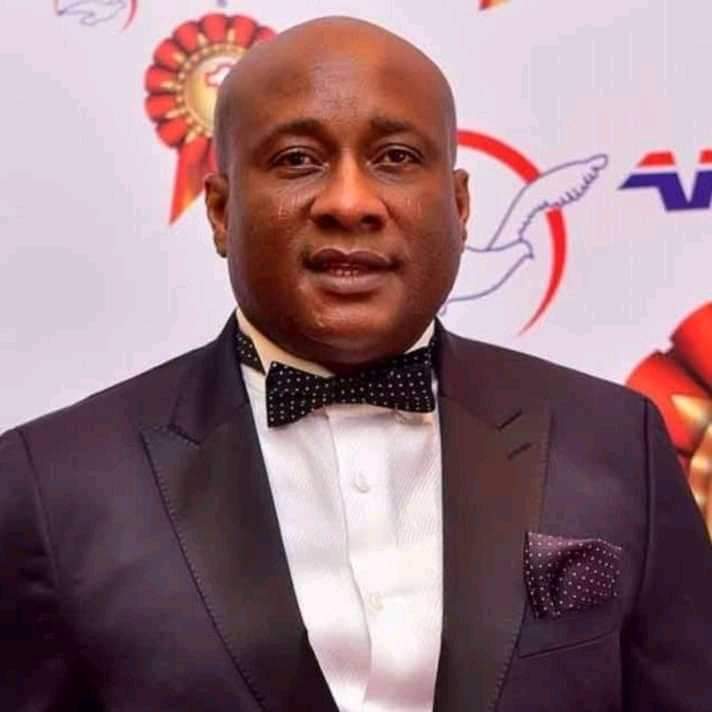

MUSINGS ON ALLEN ONYEMA’S AIR PEACE -ByAdeyemi Mapaderun, FSM
-


Tinubu’s Chicago certificates not forged — BBC Report
-
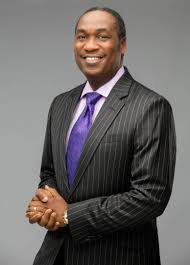

Tinubu Will Make Use Of Technology For Massive Development In Nigeria – Lagos Dep. Gov, Hamzat
-
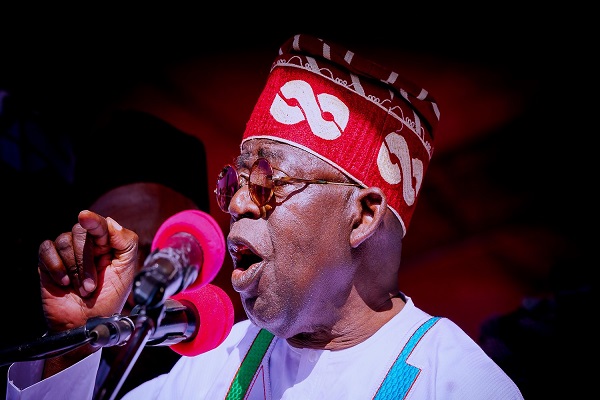

BOLA TINUBU: UNLEASHING THE POWER OF VISION
-
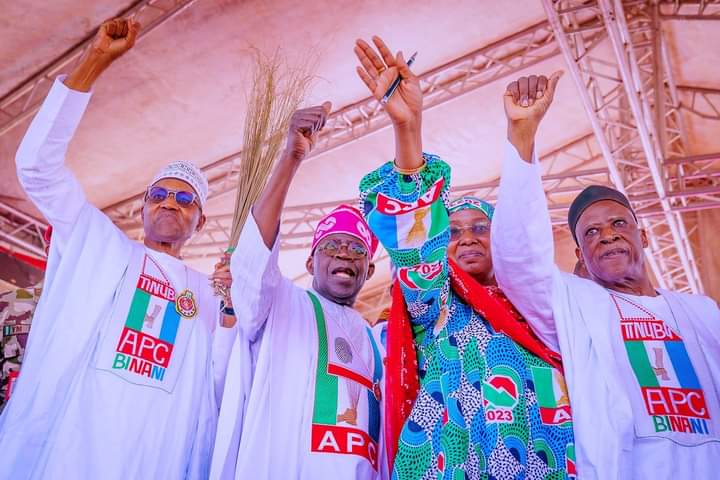

At APC Rally, Tinubu Urges Adamawa to Vote First Female Governor …Says Buhari has laid solid foundation for Nigeria
-
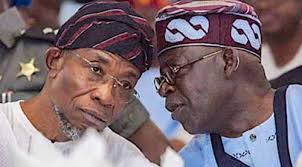

They are frustrating moves to reconcile me with Tinubu, Aregbesola cries out


